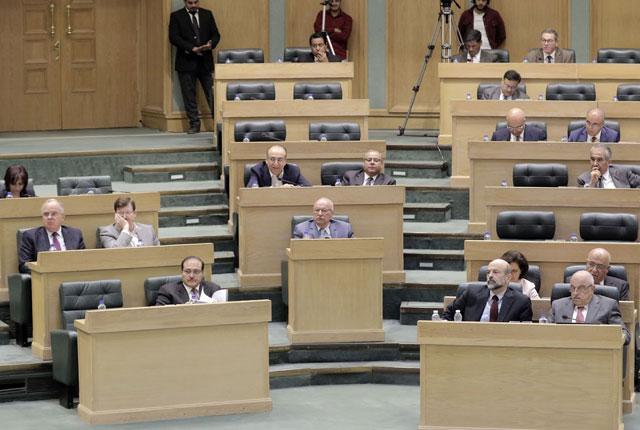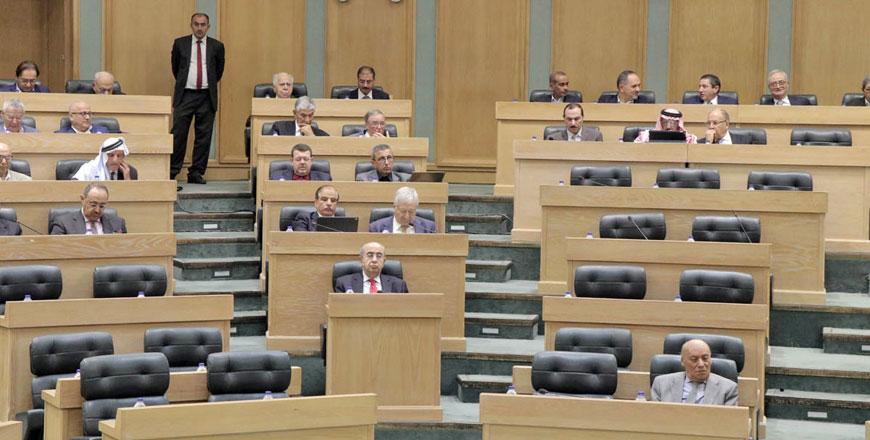You are here
Lower House refers income tax law amendments to economic committee
By JT - Sep 26,2018 - Last updated at Sep 26,2018

A total of 98 MPs spoke on the bill during the first reading of the draft law on Wednesday (Petra photo)
AMMAN — The Lower House on Wednesday referred the 2018 amendments of the Income Tax Law to its Economy and Investment Committee, the Jordan News Agency, Petra, reported.
A total of 98 MPs spoke on the bill during the first reading of the draft law, before the majority of them decided to refer it to the House’s Economy and Investment Committee, while 28 MPs voted for returning the bill.
Deputies also insisted on their decision regarding the 2018 civil retirement draft law, under which ministers’ entitlement to a lifetime pension is linked to at least 10 years of public service, opposing the senators who agreed with the government’s version that stipulates a seven-year public service for ministers to receive lifetime pensions.
They approved the Senate’s decision to remove a phrase banning the re-appointment of those who were diagnosed with sever or full incapacity to work, Petra added.
Later in the day, the Senate’s Legal Committee approved the 2018 civil retirement draft law, after it was referred back from the Lower House, according to Petra.
The House on Thursday is scheduled to hold its last meeting in the extraordinary session to refer the cyber crime, integrity and anti-corruption and illicit gain draft laws to its specialised panels.
The draft law amending the Illicit Gains Law aims to promote the values of integrity and transparency and expand the scope of the categories subject to the provisions of Illicit Gains Law by adding the heads and members of municipalities' temporary committees, executive directors and the heads and members of the governorate councils to the categories subject to the law.
The draft law amending the Integrity and Anti-Corruption Law seeks to “strengthen the independence of the Jordan Integrity and Anti-Corruption Commission board's chairman and members”, as this is necessary to “enhance public confidence in the commission’s outputs and its preventive and proactive role to combat corruption”.
Related Articles
The Senate’s Legal Committee on Thursday approved the draft 2013 amendments to the Anti-Corruption Commission Law as received from the Lower House.
AMMAN — In the final meeting of its current extraordinary session, the Lower House on Thursday referred three draft laws to its Legal Commit
AMMAN – The Cabinet on Monday approved a draft law amending the 2018 Illicit Gains Law and the draft law amending the 2018 Integrity and Ant















